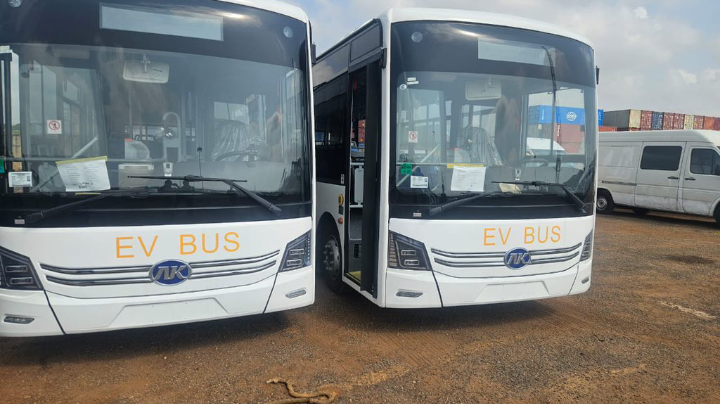Ghana has made a significant stride toward sustainable transport with the arrival of newly procured electric buses, marking a transformative shift away from reliance on petrol and gas-powered vehicles.
This initiative is part of the country’s broader strategy to reduce fuel costs, promote green energy, and lower the environmental impact of public transportation as articulated on X.
The electric buses, which are set to replace traditional fuel-powered ones, promise several key benefits. Most notably, the transition to electric vehicles (EVs) eliminates the need for costly fuel, resulting in lower operational expenses for the transport sector.
This, in turn, will lead to a reduction in public transport fares by approximately 40%. The move is expected to provide relief for commuters, offering an affordable, eco-friendly alternative to traditional public transport options.
One of the main advocates for this change, Dr. Mahamudu Bawumia, Ghana’s Vice President, has been credited with championing this bold transition.
His leadership is seen as part of a larger vision for the country’s economic and environmental future, with an emphasis on clean energy solutions such as solar power and electric vehicles.
The introduction of electric buses aligns with Ghana’s broader push to modernize its infrastructure and reduce dependence on fossil fuels, ultimately contributing to the nation’s long-term sustainability goals.
The arrival of these buses is being celebrated by various stakeholders, including political figures and activists like General Buhari, who expressed support for Dr. Bawumia’s efforts.
He praised the Vice President for his commitment to finding “bold solutions for the future,” positioning this development as a crucial step toward modernizing the country’s transport sector.
As Ghana shifts toward electric and solar energy, this move signals a promising future for the country, with reduced emissions, lower transportation costs, and an overall more sustainable public transport system.
